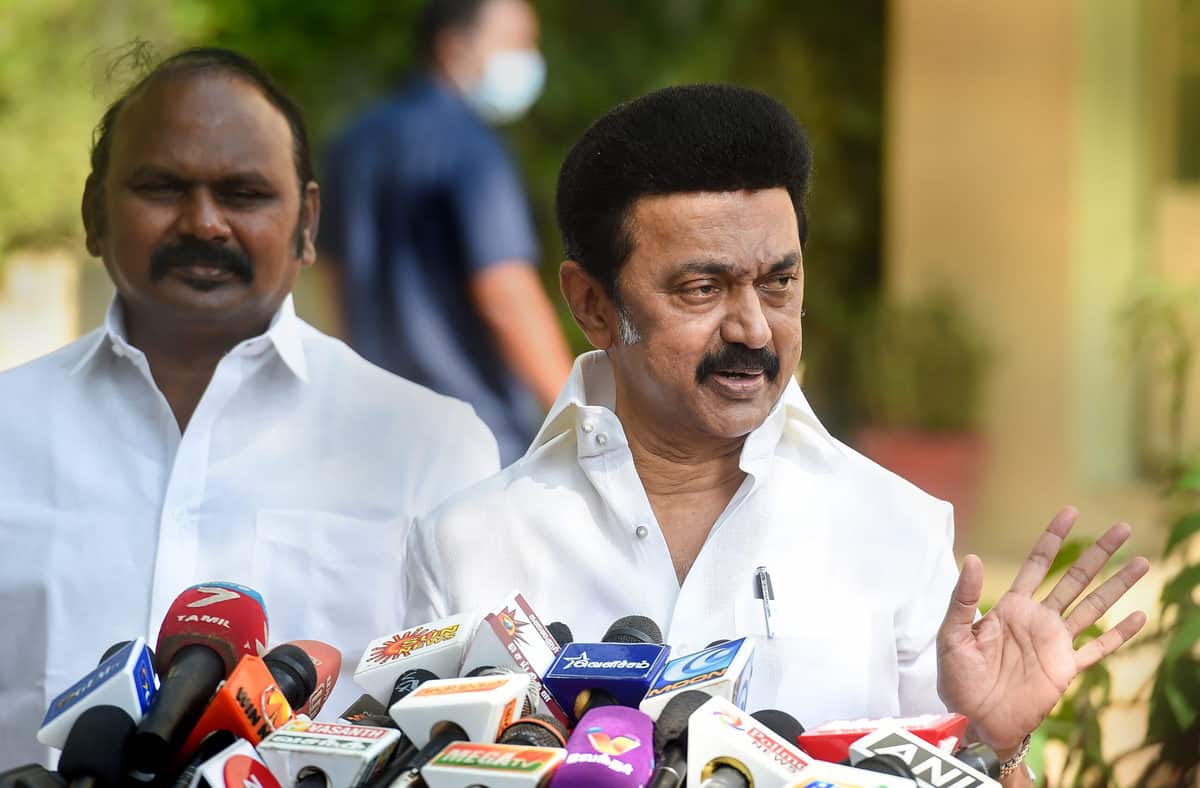
Tamil Nadu chief minister MK Stalin completed one year in office on May 7. He has emerged out of the shadows of his famous father and late former chief minister M Karunanidhi. After winning the state last year, Stalin now had to live up to the voters’ expectations, as he assumed office when Tamil Nadu lacked charismatic leaders.
Secondly, the coffers of the Tami Nadu government are not in a healthy state. Thirdly, having been out of power for ten years, the Stalin-led DMK had promised the moon to the voters and succeeded in coming to power in 2021. After the oath-taking, Stalin said, “The DMK government will function so that those who voted for the party will be happy about its performance, and those who did not will feel sorry for not voting for it.”
Forced to face the challenges, Stalin spent the first three months dealing with the COVID-19 pandemic and managed it somewhat creditably. Tamil Nadu faced torrential rains and flood havoc for the next two months. Therefore, he could concentrate on development only for the remaining seven months.
He has delivered some promises, such as free bus- rides for women, medical care, and education for the homeless. More promises in a list of 500 are yet to be met, including the monthly provision of Rs 1,000 to homemakers, and custodial deaths, which have focussed on the law enforcement personnel.
Stalin is now confident of acquiring a national profile. Apart from the electoral success, the DMK strengthened its position by winning the urban polls in a big way three months ago. DMK has dabbled in national politics and participated in the National Front, United Front, NDA, and UPA governments. So there is nothing wrong with Stalin’s ambition.
In the past year, Stalin has first pitted his “Dravidian model against Prime Minister Narendra Modi’s (Gujarat model) Explaining his ambition, Stalin tweeted, “The goal of the Dravidian model is to build a better Tamil Nadu”.
Secondly, having emerged as a good negotiator in alliance politics at the state level, he aims to take it to the national level. He could bring together 12 parties, including the Communist parties and the Congress in the state. He would like to play a role in elections in 2024 and be a galvanising force among non-BJP parties, some of whom do not see eye to eye with Congress.
Thirdly, Stalin is playing an aggressive role in promoting the ideas of federalism and social justice. He has floated the All-India Federation for Social Justice to ” achieve principles of social justice and federalism at the national level”.
Fourthly, Stalin used the emotional issue of language and encouraged the anti-Hindi imposition sentiments. Dravidian parties were alleging that Delhi was trying to impose Hindi in the state. It has a background, as old-timers will recall how the DMK successfully fought against the issue in the sixties.
Fifthly and more importantly, Stalin has shown his initiative on the foreign policy front vis a vis Sri Lanka, which faces an unprecedented political and economic crisis. Stalin has not only met Modi offering to help the Sri Lankan Tamils but also expressed concern about the refugee inflow. Tamil Nadu has always wanted a say in the Sri Lankan policy, and the Centre often went along with the sentiments of Tamil Nadu political parties.
Stalin recently got a unanimous resolution passed in the Assembly and has appealed to the public to make voluntary donations to the Sri Lankan cause. As chief of the DMK, he announced an Rs crore donation. He announced that the Tamil Nadu government would soon be sending 40,000 tonnes of rice, 500 tons of milk powder, and life-saving drugs in the first phase to the neighbouring country. He recalled that the Centre had approved the state’s humanitarian initiative.
Sixthly, Stalin recently inaugurated the DMK office in Delhi as part of his national ambition. “For me, all state parties opposing BJP should join hands with Congress and the Left to form a team against BJP,” he said.
Seventhly, to enhance his growing national stature, he mobilised a galaxy of non-BJP leaders for his book release on February 28. Those included Sonia Gandhi, Rahul Gandhi, Dr Farooq Abdullah, Tejaswi Yadav, Uddhav Thackeray, and others.
Stalin launched a struggle against the Centre on many issues. He has been networking with chief ministers to press the Centre to share a more significant share of Goods and Services Tax. The resolution against the NEET selection measures to bring back education on the state list, and reservations in medical education, are some of the issues.
The low-profile leader certainly has made a mark at the national level. However, is one year enough to judge a person’s abilities? Certainly not, but it indicates which direction his government is moving forward.
